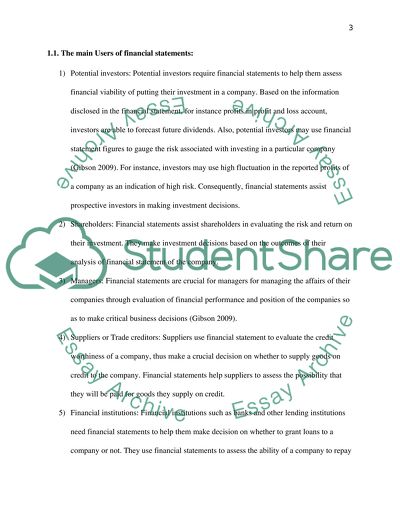Cite this document
(“Financial and accounting Essay Example | Topics and Well Written Essays - 1500 words”, n.d.)
Retrieved from https://studentshare.org/finance-accounting/1689796-financial-and-accounting
Retrieved from https://studentshare.org/finance-accounting/1689796-financial-and-accounting
(Financial and Accounting Essay Example | Topics and Well Written Essays - 1500 Words)
https://studentshare.org/finance-accounting/1689796-financial-and-accounting.
https://studentshare.org/finance-accounting/1689796-financial-and-accounting.
“Financial and Accounting Essay Example | Topics and Well Written Essays - 1500 Words”, n.d. https://studentshare.org/finance-accounting/1689796-financial-and-accounting.


